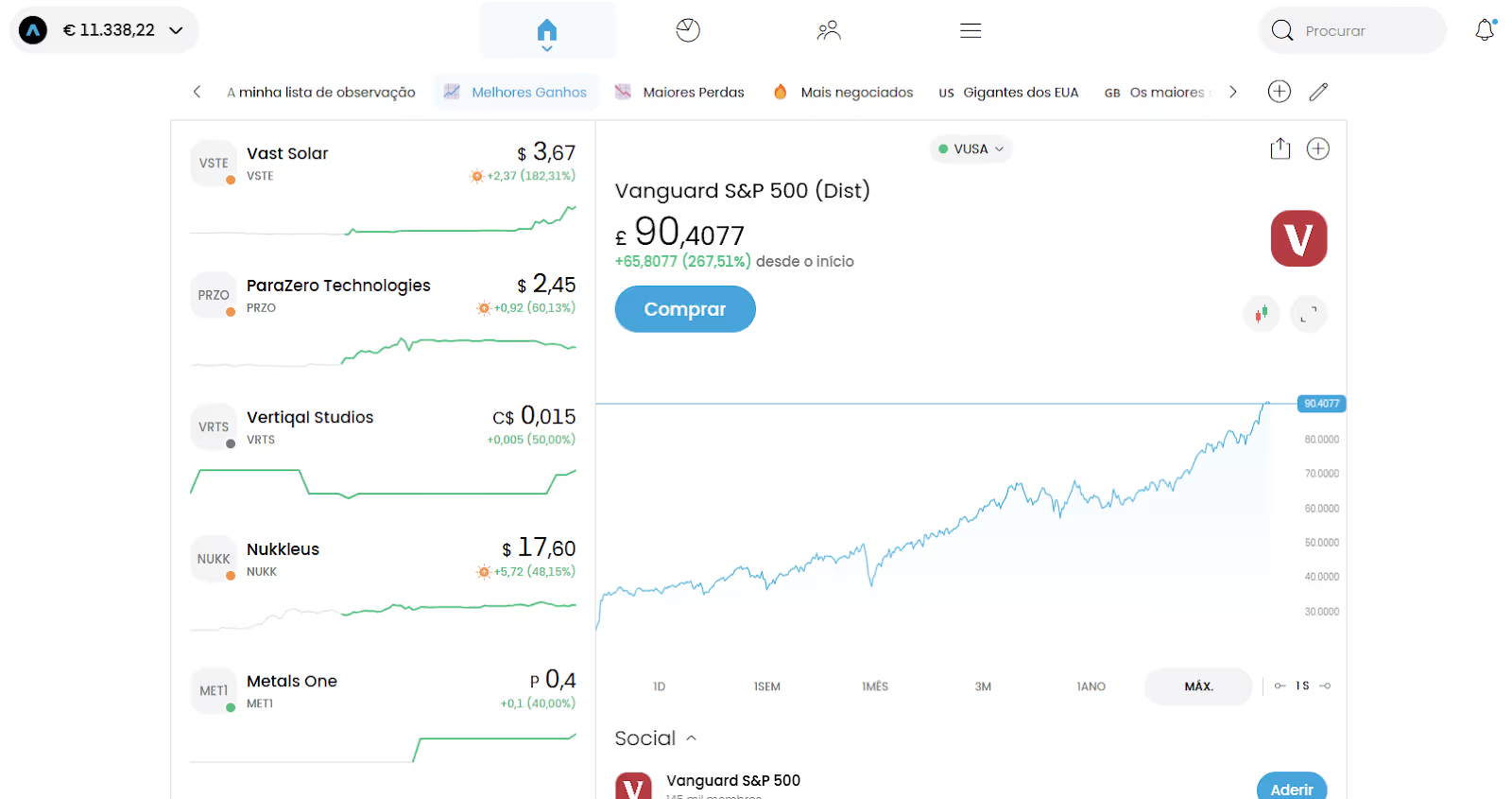Trading 212 vs DEGIRO: Which one should you choose in 2025?
.avif)

Both Trading 212 and DEGIRO have heavily invested in the European market through advertising on social media and traditional media.
Which one is better? We are users of both platforms, and each has its unique features, advantages, and disadvantages. In this article, we will share our experience with both to help you understand which platform might be more suitable for you, depending on your investor profile and needs. We will explore in detail everything Trading 212 and DEGIRO have to offer.
Summary:
- Trading 212: Best for investing in stocks and ETFs with no commissions (unlimited) and earning interest on uninvested cash and borrowed shares.
- DEGIRO: Best for bonds and options.
We feel comfortable investing using either broker.
Trading 212 is the best choice for investing in stocks and ETFs with no commissions (unlimited) and earning interest on uninvested cash and borrowed shares. We also find Trading 212's app slightly more intuitive than DEGIRO's, making it ideal for beginners.
On the other hand, DEGIRO is the better choice for those seeking exposure to bonds and options. Although it does not offer commission-free investing or interest on account balances, it remains a great alternative for investing in local stock markets (e.g., Portuguese stocks) at a reduced cost. Another advantage of DEGIRO is its banking license. DEGIRO also does not offer CFDs, which may be a plus if you are not interested in these instruments.
Comparison table
Trading 212 overview
Founded in 2003, Trading 212 was one of the pioneers in offering low commissions and simplified access to financial markets for European investors. It is based in the UK and regulated by entities such as the Financial Conduct Authority (FCA).
Trading 212 has gained popularity due to its user-friendly investment platform, the ability to invest with just €1, and their signup promotion.
Wondering about the safety of your funds on Trading 212? Check our dedicated article: "Is Trading 212 safe?".

Pros and cons of Trading 212
Pros
- Commission-free trading of stocks and ETFs (other fees may apply – check terms and fees).
- AutoInvest & Pies functionality for automated investing.
- Quick and easy account opening process.
- Demo account available.
- Offers a fractional share worth up to €100 to new clients.
- High interest on uninvested cash.
- Interest on borrowed shares.
- Modern and easy-to-use app.
Cons
- Limited product portfolio (no options, bonds, mutual funds, or futures).
- Currency conversion fee of 0.15%.
- Lack of relevant fundamental tools.
- As a private company, it is not subject to the same level of scrutiny and transparency as DEGIRO.
- No banking license available for most European clients (only German clients at this point)
DEGIRO's overview
Founded in 2008, DEGIRO was one of the first brokers to offer low commissions to European investors. It is based in the Netherlands, holds a banking license, and is supervised by European financial authorities such as the Dutch Central Bank (DNB) and the Dutch Authority for Financial Markets (AFM).
DEGIRO is listed on the Frankfurt Stock Exchange (flatexDEGIRO AG)
DEGIRO stands out for its low-cost model, allowing investors access to various financial instruments such as stocks, ETFs, bonds, and options on multiple international exchanges.

Pros and cons of DEGIRO
Pros
- Selection of popular ETFs (external fees apply).
- Intuitive web and mobile applications.
- Wide range of investment options.
- Educational material: Investor Academy.
- Low overall fee structure.
- No account opening, inactivity, or withdrawal fees.
Cons
- Currency conversion fee of 0.25%.
- Handling fee of €1 per transaction (applied to most trades).
- Connectivity fee of €2.50 (annual) per exchange.
- No Forex, CFDs, or cryptocurrencies.
- Limited customer support quality.
- No interest on uninvested cash.
Regulation and safety
DEGIRO offers a high level of transparency, as it is listed on the Frankfurt Stock Exchange, ensuring stricter scrutiny of its financial reports. Trading 212, on the other hand, is a private company.
Moreover, DEGIRO holds a banking license, meaning that deposits are protected by the Deposit Guarantee Scheme, whereas Trading 212 does not have a banking license available for EU clients (although some German clients already benefit from this additional protection).
Nevertheless, both benefit from the investor compensation fund.
Financial instruments
Although DEGIRO offers a broader range of products in terms of ETFs, bonds, and options, Trading 212 provides a greater variety of stocks.
Investment platforms
Both platforms are simple, intuitive, and ideal for beginners. However, we believe Trading 212 has a slight edge.
Fees
Trading 212 is more competitive by offering commission-free trading on stocks and ETFs, as well as a lower currency conversion fee.
Customer support
Trading 212:
- Email: Response time varies depending on volume.
- Chat: Available on the platform.
DEGIRO:
- Email: Response time varies depending on volume.
- Phone: Available in several languages, but with limited hours.
Which should you choose?
The choice between Trading 212 and DEGIRO depends on your specific needs. Both brokers have unique advantages that make them appealing in different contexts.
Trading 212 is known for its simplicity and intuitive platform, making it ideal for beginner investors. It also offers commission-free investing in stocks and ETFs and allows you to earn interest on uninvested cash and borrowed shares.
On the other hand, DEGIRO offers a more diverse range of financial products, including bonds and options, and a competitive fee structure, especially when compared to traditional banking brokerage services. DEGIRO also does not offer CFDs, which may be a plus if you are not interested in these instruments.
If possible, trying both platforms can be a useful strategy to determine which one best suits your needs.





